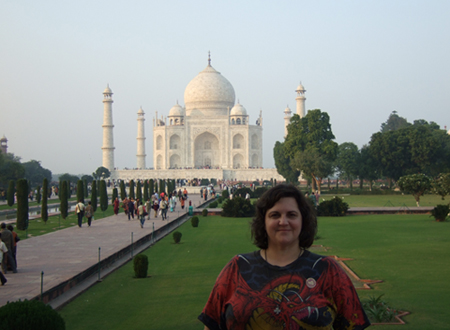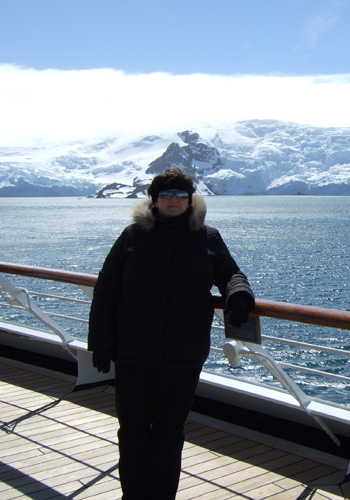Meet EPA Environmental Engineer Felicia Barnett

Felicia Barnett provides expertise to the southeast region’s waste programs through investigative and engineering technical support, research, and innovative technologies, and is the national contact for waste site characterization and monitoring support.
Ms Barnett joined EPA in 1985 as a Site Assessment Manager for the Superfund Program and later worked as a Remedial Project Manager cleaning up pesticide, creosote, volatile organic compound, and metals contaminated spills and dump sites. She was a member of the Brownfields US-German Bilateral Working Group which was responsible for developing and providing support for SMARTe, the Sustainable Management Approaches and Revitalization Tool –electronic. SMARTe is a national support tool to assist land revitalization stakeholders in their decision making process.
What do you like most about your work?
I like the variety. When site managers come to us, it’s because they have a specific problem at a waste site that needs our help. Sometimes it is something we haven’t seen before and we’re looking at an emerging problem. It’s always new and intriguing.
When did you first know you wanted to be a scientist?
I grew up on a farm with animals and marshes and creeks. Biology and life has always been fascinating to me. I also come from a mathematical family, so from a very young age I knew I was going to do something with math and science. Whenever you are growing crops or raising farm animals, there is a strong connection to the environment. The weather, soil condition, and other natural factors affect everything you do.
If you could have dinner with any scientist, past or present, who would you choose?
I would love to speak with Dr. Walter Reed. He was involved with so many things in terms of health and transmission of disease, and I’d like to know when his interest in those areas began. Was it from a young age or was it during his time on the frontier as a military doctor? I’ve always wondered what inspired him to achieve so much.
Tell us about your background.
I have a Bachelors of Science degree in Chemical Engineering from the University of Tennessee in Knoxville. I’m originally from north Georgia and really love the mountains, so I think Tennessee called to me. Prior to joining EPA, I worked in the power industry performing water quality sampling and analysis.
How does your science matter?
I am a Superfund and Technology Liaison for EPA’s southeastern regional office (EPA Region 4). Superfund and Technology Liaisons like me are scientists and engineers located within all of EPA’s regional offices across the country to help support decision making for hazardous waste programs. We help ensure that decisions are based on sound science and technology. That includes identifying other Agency experts who have the knowledge to help solve unique environmental and human health challenges that each region is facing.
I am also the director of the Site Characterization and Monitoring Technical Support Center, which provides direct access to EPA researchers and contractors to help regions deal with day-to-day, on-the-ground problems. For example, in this region a local concern we are helping with is vapor intrusion in homes.

Can you give an example of that work?
Sure. We developed a statistics program called ProUCL that I think is having a real impact supporting hazardous waste site investigations and cleanups. It combines many statistical programs and walks users through which ones to go to when evaluating a lot of data and looking for trends.
The program is used nationally and abroad—even listed in guidance in Australia. We are constantly updating it to keep up with the latest technological advances and in early 2020, developed 3 new training courses on use of the program which can be found linked on the software training page. Right now ProUCL is the “go to” program for this kind of work. And we want to keep it that way.
If you weren’t a scientist, what would you be doing?
I would be working with animals and traveling, because I love both! Right now, I’m planning a trip to French Polynesia and Easter Island. I’ve been to every continent and I rarely go the same place twice, I enjoy seeing new places and meeting new people. I recently went to Greenland and only have one U.S. state left to visit: North Dakota! As far as working with animals, I have two horses and three rescue dogs that live on my 17 acre farm. I love being around animals and volunteer when I can, so I would love to do animal rescue work.
What advice would you give students interested in a career in science?
My advice is to start with something you love. That was biology for me, even though I ended up with a degree in chemical engineering. Branch out when you have the time. Spend your time in high school discovering the things you love and see where that leads you. I think sometimes people think if they are really good at math they should spend all their time doing math, but there are many other science degrees that incorporate math and will lead you down paths you would never expect.
Editor's Note: The opinions expressed herein are those of the researcher alone. EPA does not endorse the opinions or positions expressed.
